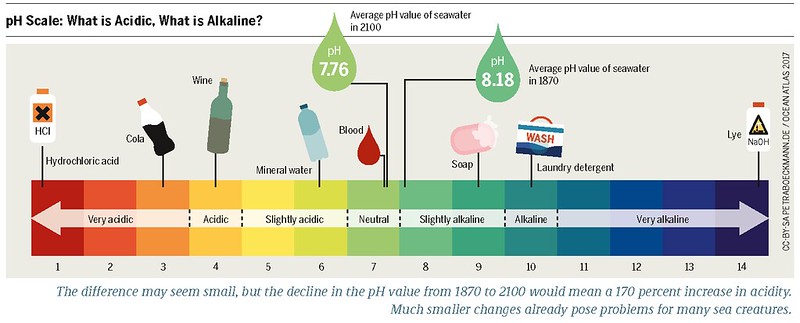The pH of tap water in Georgia, USA, can vary depending on the location and the source of the water. According to the USGS Current Conditions for Georgia Water Quality, the pH of tap water in different counties in Georgia ranges from 6.0 to 8.8. Understanding the pH of tap water is crucial for ensuring its safety and quality for consumption.
Factors Affecting the pH of Tap Water in Georgia
The pH of tap water in Georgia can be influenced by several factors, including:
-
Water Source: The pH of water can vary depending on the source, such as surface water (rivers, lakes) or groundwater (wells). Surface water tends to have a lower pH due to the presence of dissolved carbon dioxide, while groundwater can have a higher pH due to the presence of minerals.
-
Geological Composition: The underlying geology of the region can also affect the pH of tap water. Areas with limestone or other alkaline rock formations may have a higher pH, while areas with acidic rock formations may have a lower pH.
-
Treatment Processes: The water treatment processes used by local utilities can also impact the pH of tap water. Certain treatment methods, such as the addition of chemicals or the use of filtration systems, can alter the pH of the water.
-
Pipe Materials: The materials used in the distribution system, such as copper or lead pipes, can also affect the pH of tap water. Acidic water can leach metals from these pipes, leading to a change in the pH.
Acceptable pH Range for Tap Water
The ideal pH range for drinking water is between 6.5 and 8.5, as recommended by the Environmental Protection Agency (EPA). This range is considered safe for human consumption and helps to prevent corrosion of pipes and the leaching of metals.
Potential Health Impacts of pH Levels in Tap Water
Extreme pH levels in tap water can have the following health impacts:
-
Low pH (Acidic): Acidic water can be corrosive and can leach metals, such as lead and copper, from pipes and plumbing fixtures. This can lead to increased levels of these metals in the water, which can be harmful to human health.
-
High pH (Basic): Basic water can have a bitter taste and can form deposits in pipes, leading to clogging and reduced water flow. In some cases, high pH levels can also interfere with the effectiveness of water treatment processes.
Contaminants in Georgia’s Tap Water
In addition to pH levels, tap water in Georgia may also contain various contaminants that can affect its quality and safety. According to the Environmental Working Group (EWG) Tap Water Database, some of the contaminants found in Georgia’s tap water above health guidelines include:
- Bromodichloromethane
- Total Trihalomethanes (TTHMs)
- Chloroform
- Dibromochloromethane
- Haloacetic Acids (HAA5)
- Dichloroacetic Acid
- Trichloroacetic Acid
- Chromium (Hexavalent)
- Nitrate and Nitrite
- Haloacetic Acids (HAA9)
- Dibromoacetic Acid
- Chlorate
- Radium (Combined -226 & -228)
- Bromate
- Nitrate
- Chlorite
- Bromoform
- Perfluoroheptanoic Acid (PFHPA)
- Perfluorobutane Sulfonate (PFBS)
- Manganese
- Perfluorooctanoic Acid (PFOA)
- Arsenic
- Perfluorooctane Sulfonate (PFOS)
- Uranium
- Tetrachloroethylene (Perchloroethylene)
- Antimony
- 1,4-Dioxane
- Thallium
- Lead
Addressing pH and Contaminant Issues in Georgia’s Tap Water
To address the pH and contaminant issues in Georgia’s tap water, residents can take the following steps:
-
Test the Water: Regularly test the pH and contaminant levels of your tap water to ensure it is within the acceptable range and free of harmful substances.
-
Install a Water Filter: Depending on the specific contaminants present in your water, install a water filter that can effectively remove them. Common filter types include activated carbon filters, reverse osmosis filters, and ion exchange filters.
-
Use Home Remedies: For minor pH adjustments, you can use home remedies such as adding baking soda (to increase pH) or vinegar (to decrease pH) to your water.
-
Contact Local Authorities: If you have concerns about the quality of your tap water, contact your local water utility or the Georgia Environmental Protection Division for more information and assistance.
By understanding the pH and contaminant levels in Georgia’s tap water, residents can take the necessary steps to ensure the safety and quality of their drinking water.
References:
- USGS Current Conditions for Georgia Water Quality – https://waterdata.usgs.gov/ga/nwis/current/?group_key=basin_cd&type=quality
- EWG Tap Water Database | Georgia – https://www.ewg.org/tapwater/state.php?stab=GA
- Annual Water Quality Information | CCMWA – https://www.ccmwa.org/education/annual-water-quality-information

